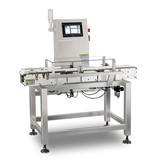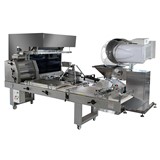The project is jointly funded by the Australian and Indian governments through the Australia-India Strategic Research Fund (AISRF).
RMIT's Centre of Advanced Materials and Industry Chemistry (CAMIC) will join the Indian Institute of Technology, Bharat Petroleum Corporation Limited and the University of Melbourne in a consortium led by CSIRO and the Indian Institute of Petroleum to reduce both countries' reliance on imported fuels such as Liquefied Petroleum Gas (LPG) and natural gas.
In India, LPG is used for cooking in more than 33 million homes and its use is increasing rapidly.
India's production of LPG doesn't meet the domestic demand and imports are rising rapidly.
Both Australia and India have abundant reserves of natural gas, however, these reserves are generally located in remote locations and are difficult to bring to market.
Professor Suresh Bhargava, Deputy Pro Vice Chancellor (International) and Director of CAMIC, is the leader of the RMIT team involved in the research.
Professor Bhargava said the project aimed to develop technologies to assist in the introduction and long-term use of dimethyl ether (DME) in Australia and India.
"DME is a clean burning synthetic fuel that can be produced from hydrocarbon resources including natural gas coal and biomass, or directly from carbon dioxide," he said.
"It can be used for a range of applications and has great potential in both the transport sector and for domestic cooking, where it can be used as a blend stock with LPG or as a diesel substitute."
DME produces significantly less pollution than its conventional counterpart.
The production and use of DME in India and Australia would have significant strategic and economic benefits for each nation by displacing products that are currently imported and by lowering CO2 emissions.
Researchers from the RMIT Advanced Manufacturing Precinct (AMP) will assist in the development of mini DME prototypes, which will evolve from small-scale test devices.
"The broad capability of the AMP in state-of-the-art additive and subtractive manufacturing technologies ensures significant flexibility regarding the nature of the devices selected for use," , Professor Milan Brandt, AMP Director, said.
The development of the mini DME prototypes is aimed at increasing the efficiency of processing gas into transportable fuels at remote locations, making Australian and Indian remote gas reserves more economically viable.
Dr Jim Patel, Project Manager, CSIRO, said the research partners brought a broad range of capabilities, allowing both the production and use of DME to be investigated.
"As a consequence of developing this technology, Australian and Indian scientists will gain valuable expertise in process intensification," he said.
"This growing field has the potential to revolutionise chemical processing and an opportunity exists for commercialisation and development of new industries based on this technology".
"This collaboration consolidates the strong research partnerships RMIT has with India, with a focus on translating basic science discoveries into safe and effective industry solutions that provide economic and health benefits," Professor David Adams, RMIT's Acting Deputy Vice-Chancellor Research and Innovation, and Vice-President, said.
"In addition, as the focus for research funding will progressively change to international funding schemes, this AISRF grant is indicative of RMIT's position as a global university of technology and design."
The Australia-India Strategic Research Fund (AISRF) helps Australian researchers participate in leading-edge scientific projects and workshops with Indian scientists.
Australia's largest fund dedicated to bilateral research with any country, and one of India's largest sources of support for international research, the fund supports the development of strategic alliances between Australian and Indian researchers.


-160x160-state_article-rel-cat.png)

-160x160-state_article-rel-cat.png)




-160x160-state_article-rel-cat.png)




-160x160-state_article-rel-cat.png)







